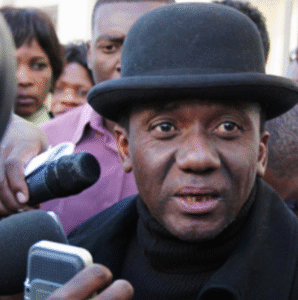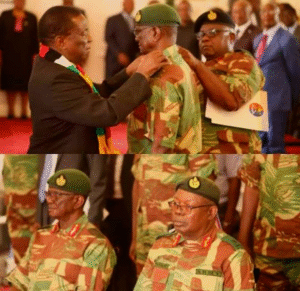UNLAWFUL PRETENCE: CHINAMASA’S FAUX ELECTION RESULTS DRAW LEGAL SCRUTINY

In a riveting twist of events, a recent proclamation by Chinamasa during a ZANU PF presser has drawn widespread backlash and prompted urgent discussions concerning the sanctity of Zimbabwe’s electoral process. Announcing results prematurely – and worse, erroneously – is not only a blatant disregard for the democratic principles upon which the nation stands but is also, quite unambiguously, a breach of electoral laws.
Zimbabwe, a nation that has experienced its fair share of electoral controversies, maintains strict laws surrounding the announcement of electoral outcomes. These laws are not mere guidelines but instead serve as the bedrock to ensure free and fair elections – a fundamental component of any democratic society.
At the heart of this legal framework is the understanding that only the Zimbabwe Electoral Commission (ZEC) possesses the authority to announce results. Any premature declarations, especially those that are untrue, muddy the waters of democracy, misleading the public and potentially inciting unrest.
Chinamasa’s premature and incorrect announcement is thus not merely an error in judgement; it is a criminal act. The act of falsifying or announcing fake results is punishable under the country’s electoral laws. It not only threatens the stability of the electoral process but also has profound implications for public trust and the overall perception of democratic processes in Zimbabwe.
Given the sensitivity surrounding elections in Zimbabwe, this recent faux pas cannot be viewed as a mere oversight. It stirs memories of past controversies and can potentially exacerbate tensions in an already volatile political climate. The issue isn’t just about getting the numbers wrong; it’s about understanding the gravity and responsibility that comes with handling and sharing such vital information.
For many Zimbabweans, this incident is reminiscent of previous electoral tensions, where results were contested and led to significant civil unrest. The onus, therefore, is on political leaders, irrespective of their affiliations, to uphold the sanctity of the electoral process. By announcing fake results, Chinamasa not only undermined this sanctity but also risked sparking unnecessary tensions.
The repercussions for such an act should be more than just a slap on the wrist. It necessitates a thorough investigation and, if found guilty, severe penalties. The country’s electoral body, ZEC, along with other relevant agencies, should not only condemn such actions but must also enforce the laws that protect the sanctity of Zimbabwean elections.
The incident also beckons for greater electoral reforms and heightened vigilance. A robust electoral system should not only have punitive measures for those who flout the rules but also preventive mechanisms to ensure such instances do not arise in the first place. Further, the media and civil society have a crucial role to play in not just holding power to account but also in educating the masses about the electoral process, the do’s and don’ts, and the consequences of deviating from them.
In conclusion, Zimbabwe stands at a critical juncture. As a nation that continues to strive for strengthened democracy, episodes like Chinamasa’s erroneous announcement serve as a stark reminder of the challenges that lie ahead. It’s an invitation for introspection, for reforms, and for a collective resolve to guard against anything that diminishes the sanctity of the nation’s electoral process. It is not merely about the politics of the day but the legacy for future generations. The response to this incident will be a telling indicator of the nation’s commitment to upholding democratic ideals.




